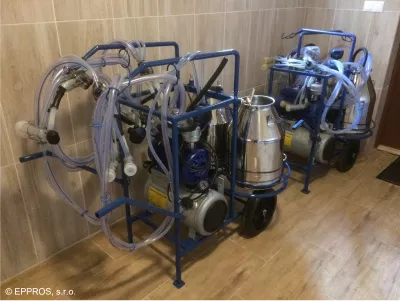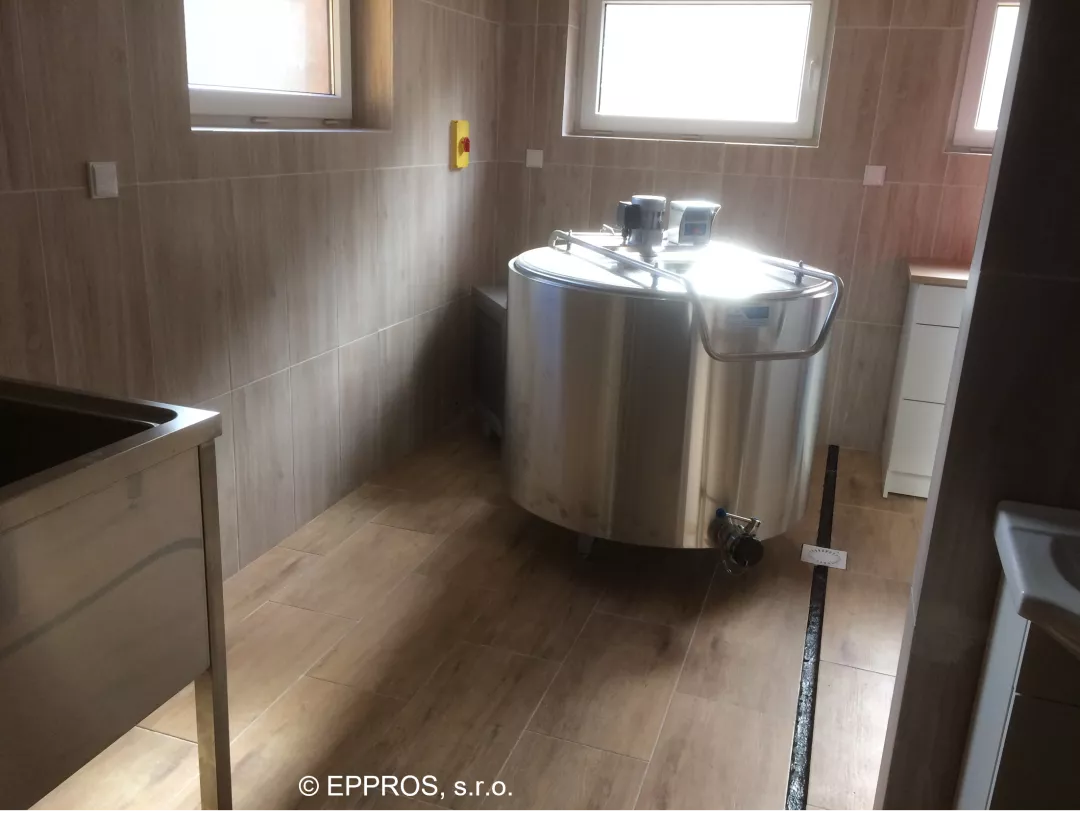General information
RDP Priority
- P3. Food chain and risk management
RDP Focus Area
- 3A: Agri-food chain integration & quality
RDP Measure
- M04: Investments in physical assets
Summary
The farm EPPROS in central Slovakia focuses on organic sheep breeding and the production of the traditional organic Slovak cheese ‘Muránsky salaš’ made from sheep's milk. The main purpose of the project was to build a new cheese processing plant in the mountain environment to support the expansion of the farm in line with increased hygiene requirements and the production of a larger range of products.
The modernisation of the milking process and the extension of the processing facilities increased hygiene and efficiency levels. This enabled the farm to increase the herd size and its production volume. Outcomes included the new production of the traditional local type of cheese - 'Rennet' - which had almost been forgotten in the region despite its 200-year history.
Results
The following results were obtained:
- More than threefold increase in production volume.
- Increased hygiene levels.
- Expanded range of product types from four to 12 cheeses produced since the implementation of the project.
- Creation of one permanent job.

Promoter
EPPROS, s.r.o.
Funding
Total budget 271 718 (EUR)
EAFRD 97 684 (EUR)
National/Regional 32 562 (EUR)
Private/Own funds 141 472 (EUR)
Ressourcen
Documents
EU CAP Network - Good Practice - Investments in tangible assets - EPPROS, s.r.o.
(PDF – 596.53 KB)
Context
The farm EPPROS in central Slovakia focuses on organic sheep breeding and the production of traditional Slovak cheese made from sheep's milk. The farm was founded as a ‘greenfield’ enterprise with a desire to produce traditional high quality organic food. The sheep are grazed and milked outdoors in the mountain environment and the milk is processed on-site in a clean natural environment with maximum respect for hygiene requirements. The cheese is marketed and branded as Muránsky salaš.
In recent years, the farm has been able to gradually expand its sheep breeding. The ambition was also to increase the types of local cheeses, particularly those with a 200-year tradition of production that had almost been forgotten in the region.
However, the original premises were no longer suitable for processing a larger volume of sheep’s milk and for compliance with the demanding hygiene requirements. To continue expanding effectively, new modernised production facilities with the latest production technology were required.
Objectives
The project had the following objectives:
- To increase the production capacity of the farm, intensify production and thus increase the farm’s economic sustainability and competitiveness.
- To build and equip a new production unit for processing sheep's milk.
Activities
The project featured the following activities:
- Constructing an organic cheese production unit.
- Equipping the production unit with modern processing technology, a cooling plant with a milk capacity of 500 litres, a cheese maker with a stirrer, a curd slicer with a capacity of 400 litres and various analytical equipment (PH meter, centrifuge, analyser).
- Equipping the plant with an electric power supply unit to drive the new technological equipment (due to the remote mountain location without mains electricity).
- Purchasing of automatic milking lines enabling the farm to switch from manual milking to automatic milking.
Main results
The following results were obtained:
- More than threefold increase in production volume.
- Expanded product range from four to 12 cheeses produced. This includes the new production of an ancient local cheese - 'Rennet' - that has been restored.
- Increased number of breeding sheep by 100%.
- Significant increase in breeding efficiency.
- Increased milking efficiency reducing milking times by half by changing from hand milking to automatic milking of sheep.
- Increased hygiene levels.
- Creation of one permanent job.
Key lessons and recommendations
- Investing in organic food production supports the resilience of local farmland and contributes to EU goals for sustainable agriculture.
- Market demand for organic products was strong enough to triple outputs.
